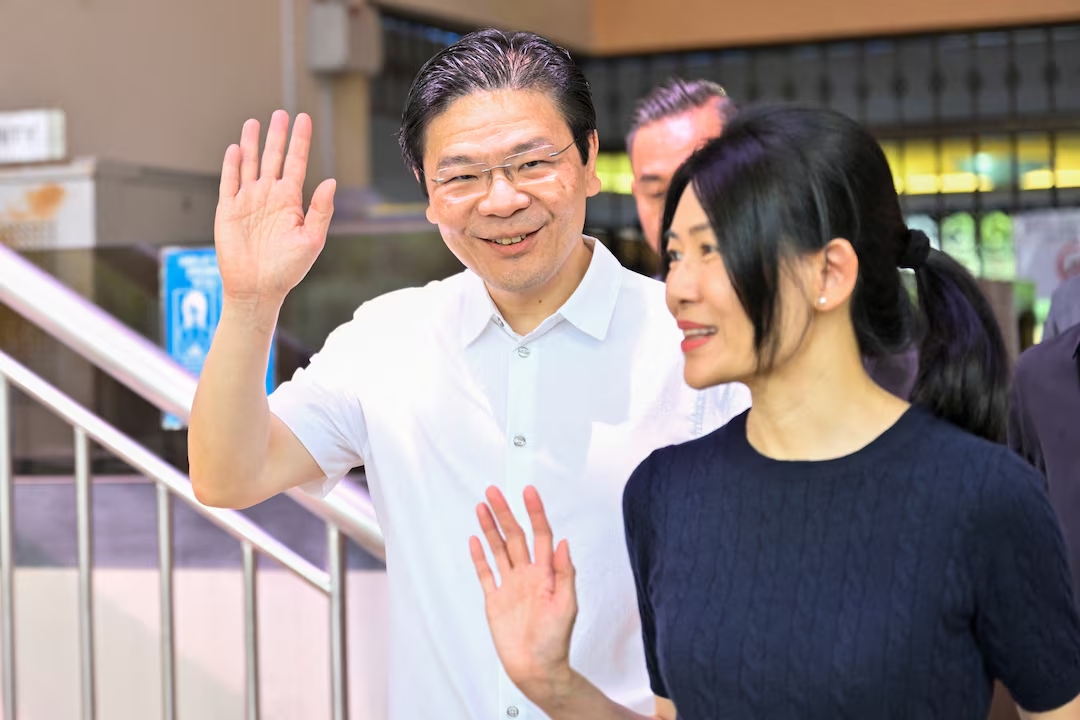Voting Concludes in Singapore's General Election – People's Action Party (PAP) Leads Among Youth Supporters
Singaporeans cast their votes on Saturday in a national election that is expected to maintain the uninterrupted rule of the People's Action Party (PAP). This election serves as a test of public support for the new Prime Minister, Lawrence Wong, as the city-state prepares for potential economic instability amid global trade tensions.
Voting Concludes in Singapore's General Election – People's Action Party (PAP) Leads Among Youth Supporters
Voting Concludes in Singapore's General Election – People's Action Party (PAP) Leads Among Youth Supporters
Singapore, May 3, 2025 – According to a Reuters report, Singaporeans cast their votes on Saturday in a national election that is expected to maintain the uninterrupted rule of the People's Action Party (PAP). This election serves as a test of public support for the new Prime Minister, Lawrence Wong, as the city-state prepares for potential economic instability amid global trade tensions.
The election is being viewed as a barometer of PAP's popularity, which has been in power since before the nation's independence in 1965. Attention is focused on whether the opposition can challenge the ruling party's stronghold and make further progress compared to previous elections. While PAP has consistently won approximately 90% of seats, the share of the popular vote is also considered a measure of their mandate's strength. Prime Minister Wong aims to improve upon the 60.1% of the vote received in the 2020 election, which was one of the party's worst performances in history.
At 52 years old, Wong became Singapore's fourth Prime Minister last year. He has pledged continuity, new leadership, and a commitment to leading Singapore in his own way.
Voting began at 8:00 AM (0000 GMT) under heavy rain, but by midday, the rain had stopped. By noon, nearly half of the voters had cast their ballots at 1,240 polling stations set up in various community centers, schools, and local venues. Voting will conclude at 8:00 PM, with results expected early Sunday morning. Voting is compulsory in Singapore.
Prime Minister Wong cast his vote during lunchtime at a polling station near the Botanic Gardens. He did not make any comments before or after voting.
As one of the world's most expensive cities, the high cost of living and housing affordability are major challenges for Wong's administration. His government has warned that if the trade-dependent economy is harmed by U.S. tariff wars, a recession could occur.
PAP has long dominated politics due to its large membership, influence in state institutions, and far greater resources compared to opponents. Each party is contesting a limited number of seats.
This election is an uneven contest, with PAP fielding candidates in all 97 constituencies, while its largest rival, the Workers' Party, is contesting only 26 seats. In the previous election, they won 10 seats, a record for an opposition party. Although PAP is unlikely to lose, some analysts say that if the opposition can make further progress, "As expected, PAP's electoral support will gradually decline with each general election," said Lam Peng Er, a political analyst at the National University of Singapore. "If PAP's support drops to 57% or 58%, would Singaporeans be surprised? Not at all. I don't think even PAP would be surprised."










